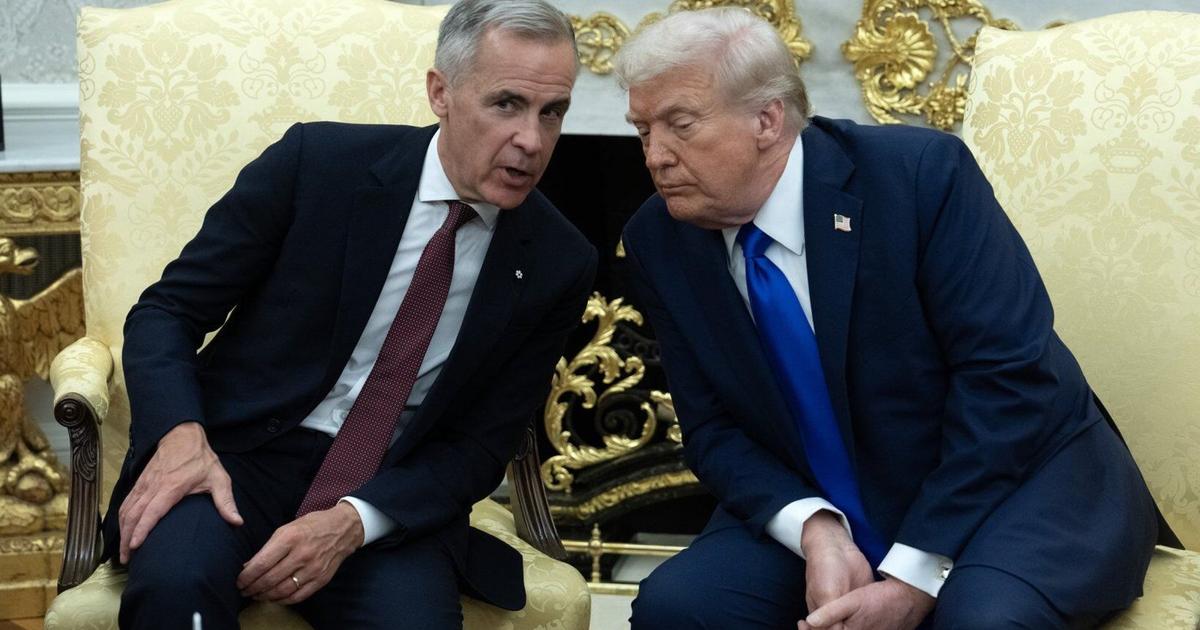Despite headlines to the contrary, Airbnb’s new Canadian country manager, Hannah Parish, believes the home-sharing platform is in a unique position to strengthen communities, especially as Canadians explore more of their country.
“Canadians are doubling down on domestic travel, and they’re travelling differently,” she says. “They’re exploring all these places that we learned about in Grade 8 social studies, which I think is pretty phenomenal.”
Parish, who became the company’s first Canadian country manager since 2017 when she was hired in June, inherited a passion for supporting local communities from her parents and step-parents.
After spending a year teaching English in Japan and earning an MBA, Parish pursued a career in marketing that included roles with Smucker’s, Lyft, an eBike startup she incubated at General Motors, and smart-ring company Oura, before joining the home-sharing platform this summer.
Founded in San Francisco in 2008, Airbnb changed global travel and empowered homeowners to make money by renting out unused space. Over time, however, the company attracted those looking to maximize returns on real estate, often resulting in less-than-neighbourly guest behaviour.
The company has been accused of fueling overtourism, gentrification and the housing affordability crisis, sparking calls for bans and regulation. In recent years, cities like Toronto and parts of cottage country have imposed new regulations restricting short-term rentals.
Now Airbnb is seeking to return to its roots of empowering individuals and their communities with two products in Canada. Airbnb Experiences — which first launched in 2016 but has recently been reimagined — invites locals to host activities like photography sessions, tours and craft projects. Airbnb Services does the same for vetted professional services ranging from stylists to personal chefs.
“These services and experiences don’t have to be just for people that are new to the area or visiting — they can be for locals too,” Parish says. “If you have a skill or passion and you’re having trouble finding a job, Airbnb has built-in marketing, built-in payments, built-in reach, so you can start a business on the platform, and that helps drive economic impact.”
The Star recently caught up with Parish from her home office in Collingwood to chat about her passion for community building, how travel has changed since the pandemic, and where Canadians are going as they look to explore more of their own backyard.
Where are you from originally?
I was born in Lunenburg, Nova Scotia, and I grew up in Halifax, which is where my love for community involvement began. Halifax is the largest city in the Maritimes, but it always felt like a neighbourhood, and my family was really involved, especially my stepmother.
When I was in high school, she became the head of the Downtown Halifax Business Commission in the ‘90s, when big box stores were hollowing out downtowns.
She realized that to revitalize downtown you needed an anchor store, so she worked with Mountain Equipment Coop to help it bring a huge store in downtown Halifax that’s still there today. She passed away from leukemia at 51, but from her I learned about how economic development drives communities.
Why pursue a career in marketing?
I was really into mountain biking, and I really wanted to be in the cycling industry, but I did some research and realized the industry is dominated by men — either male racers or mechanics — and decided I needed to get so good at something that they couldn’t say no. So I got an MBA and went to work for pharmaceutical giant Novartis and then General Mills.
Did the plan work?
It did at first. I reached out to a fellow Canadian who worked at Specialized Bicycle Components in California on Twitter, and it turns out they were hiring in Montreal, and I was lucky enough to be chosen for my dream job.
But the bicycle industry is cyclical. A couple of years later it contracted, and we decided it was time to move back to Ontario.
I am still involved though. I mentor women in the cycling industry and was just elected to the Canadian Women and Sport Board. I really believe that in sports we create heroes, especially among women; 80 per cent of Fortune 500 female executives have competitive sports backgrounds.
How did you end up in the tech industry?
I returned to the consumer-packaged goods industry with Smucker’s before eventually building an eBike company, incubated at General Motors, and then I went to work more on urban mobility for Lyft.
What was most impactful for me was spending time with drivers, getting to know their personal stories and what the supplemental income meant for their families.
It’s the same reason people host on Airbnb; it allows them to build a mini business, leveraging something they already own or a skill to support their families, stay in their homes or just buy groceries.
How did the opportunity at Airbnb come about?
Being at Lyft during the pandemic was stressful, and I was actively trying to manage my stress, which meant I had to keep myself accountable on two things: sleeping well and moving every day.
I started wearing an Oura smart ring, and it completely changed my life. So, when Oura was hiring for someone to grow their global strategy, I was like, yeah, I know how to do that, and I was lucky enough to be chosen.
Airbnb meanwhile was trying to build back after the pandemic, and they realized they needed to put someone at the helm of Canada, because Canadians were travelling more within Canada, and they wanted someone to maximize their community impact.
They wanted someone to lead the Canadian team as they doubled-down on this market, and that really spoke to me.
How has travel changed since COVID?
More than half of the bookings in Canada are domestic, and that’s up 10 per cent in the first half of 2025 compared to the first half of 2024.
When Canadians travel domestically, they stay for longer. Travel to major cities like Toronto and Vancouver remains high, but where it’s growing the most are places like Newfoundland, Saskatchewan, Quebec City, Edmonton, Canmore, Northern B.C., and Halifax.
How has Airbnb changed your hometown?
My mom and stepdad live in a small home in a place called Rose Bay. The nearest hotel is 20 minutes away in Halifax, but instead we stay at an Airbnb that’s literally three minutes walking distance. My stepfather even shovels for us in winter.
What impact does that have locally?
Instead of giving our dollars to foreign hotel owners we’re keeping them in the community.
About 83 per cent of our hosts rent out a single listing, which is usually their primary residence. They make an average of $12,700 per year, and 59 per cent say they use the money to pay for everyday essentials, like groceries.
In 2024 we helped a record breaking 9 million Canadians travel domestically on the platform. Airbnb guests generated an estimated $10.8 billion for the Canadian economy, and 70 per cent of the money they spend stays in the local community, supporting 105,000 jobs.
Airbnb is in more areas than hotels; there are so many more communities getting an economic benefit from Airbnb.
In May, we launched two new businesses, Services and Experiences, so Canadians can learn about the places they stay from the locals. If you can do anything well, or you know a place well, you can share that knowledge and expertise. One of my favourites in Toronto is you can go on a graffiti tour of downtown, which is super cool.
Are those an attempt to return to the company’s roots, before purpose-built short-term rental properties?
Whether you want something that is self-contained and private, or something that’s a real connection and opportunity, we have all those options still available.
There’s been reports of things like parties over the years, and there are challenges, but we’ve been able to create technology to respond; we can block people we suspect could be throwing unauthorized or disruptive parties on weekends and holidays.
How do you feel about recent crackdowns on short-term rentals in Toronto and Cottage Country?
It’s a balance.
Airbnb supports smart, reasonable regulations that support city goals, while allowing hosts to continue making that supplemental income. If you look at FIFA next year or Taylor Swift last year, places like Toronto and Vancouver don’t always have enough hotel rooms, and we offer a solution.
In 98 per cent of our top markets there are primary residence requirements, including Toronto. That might sound strange because it’s different than other global markets in that we are truly hyperlocal.
That’s really exciting for me as someone who is passionate about building communities. For me it’s about my neighbours who can stay in their homes and pay for their groceries and build their own businesses.
We have a strong team that wants to work with cities, with hosts, with communities, to help tell that story of economic impact and neighbourhood growth in a uniquely Canadian way.
What do you hope to accomplish in your tenure at Airbnb?
I want people to really see us as part of their communities again. I want us to be seen as an economic engine.
There were 28 Canadian communities in 2024 that hosted their very first Airbnb, and these are communities that don’t have hotels. Those are the start of 28 little tourism industries. And when I think about our ability to drive our communities forward, that’s what I really want to do, whether it’s through Services, Experiences, or helping communities drive their tourism industries. That’s what I want to do in Canada.



